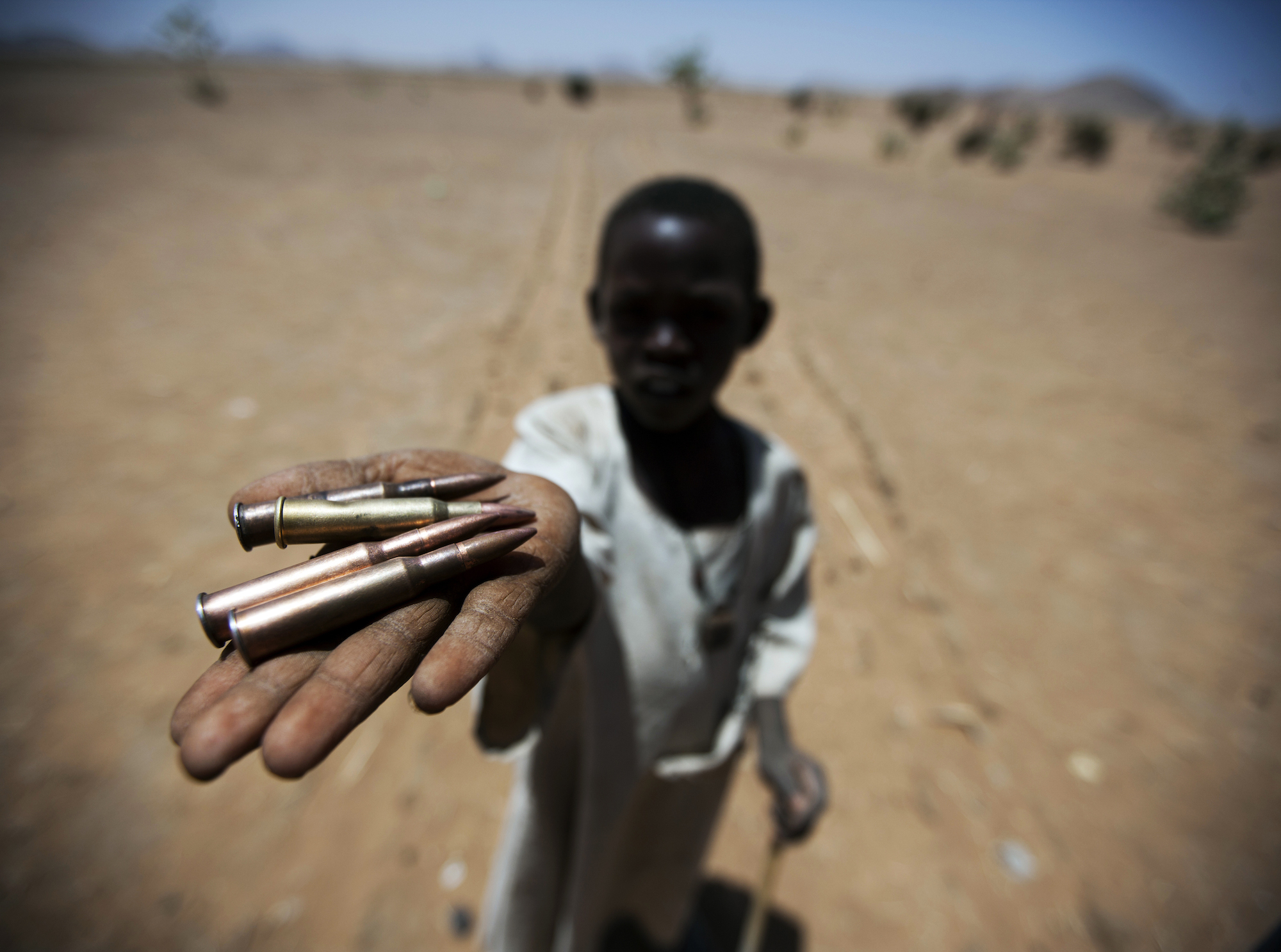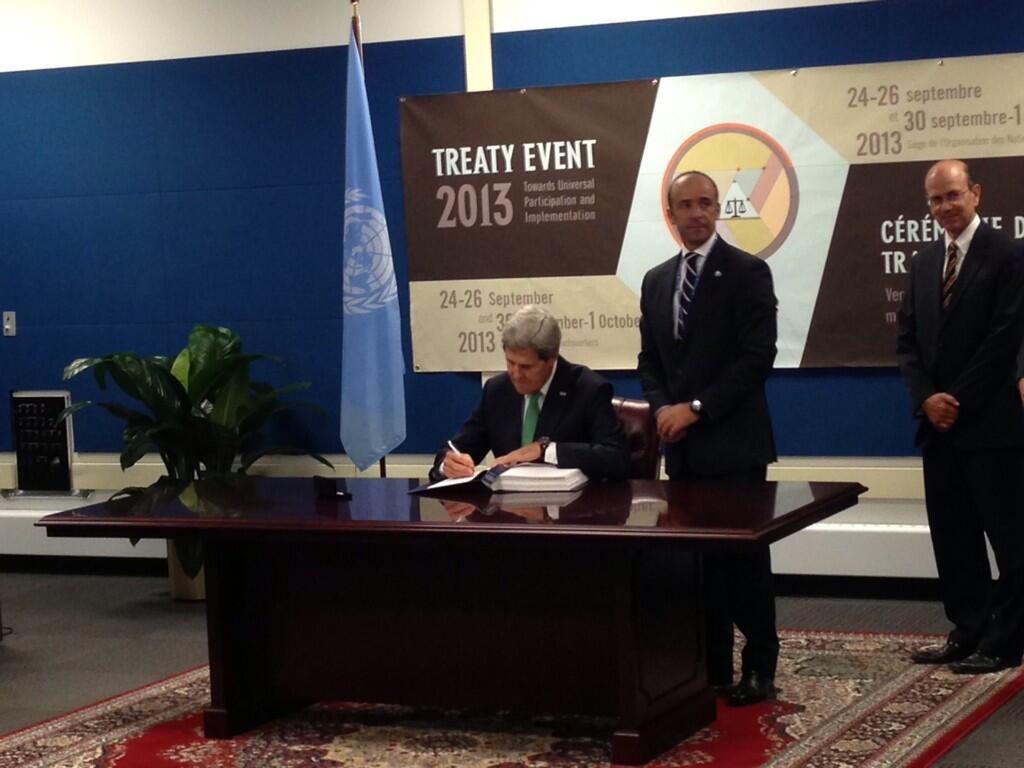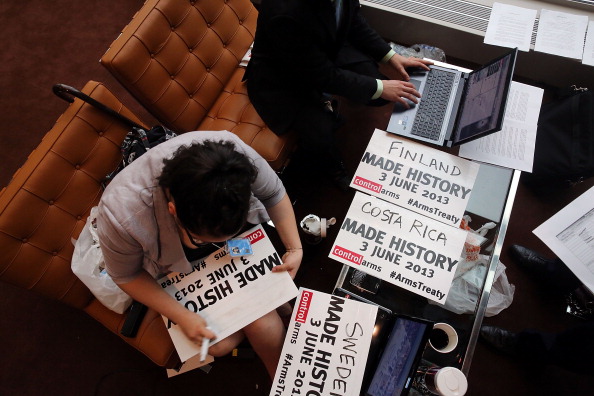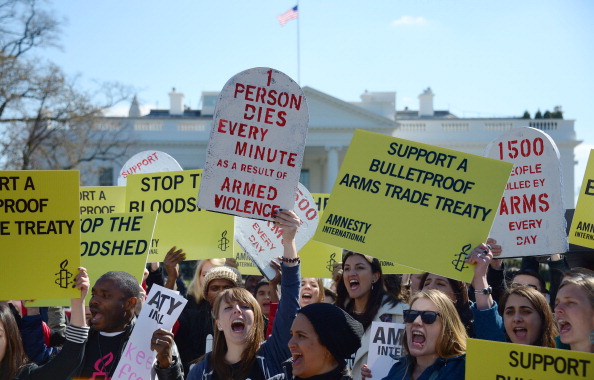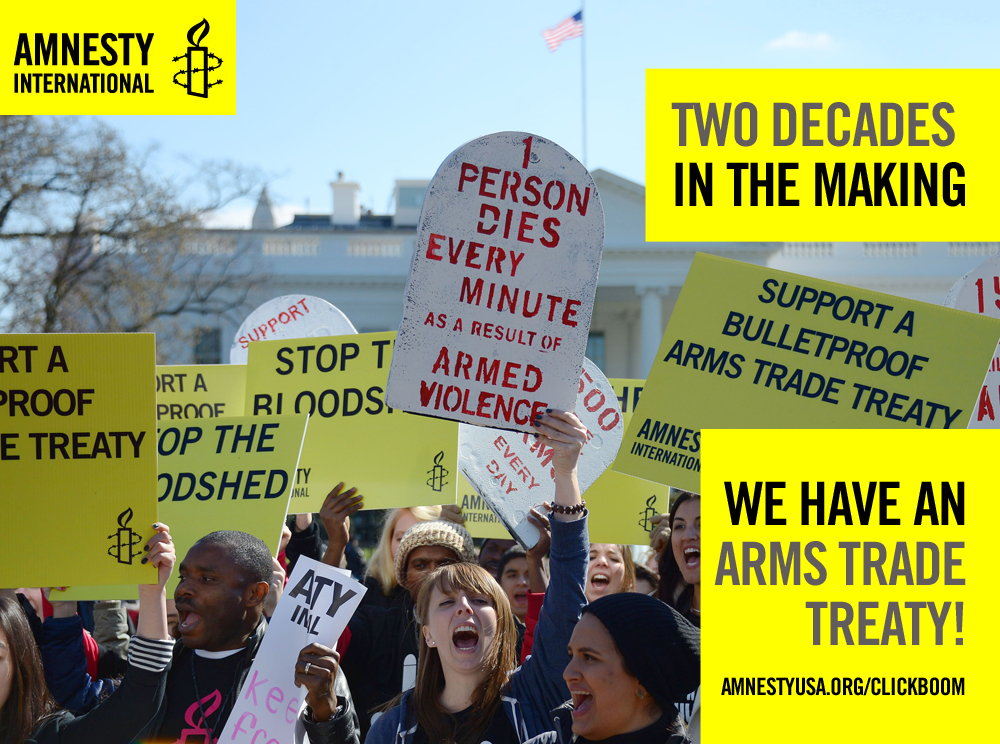This post is part of a special series on the Arms Trade Treaty. From March 18-28, world leaders from more than 150 countries are gathering for the UN Conference on the Arms Trade Treaty (ATT) in New York. An Amnesty International delegation with representatives from every world region is participating and will be pressing leaders to agree to a strong treaty that upholds international human rights law.
By Susan Waltz, Amnesty Board Member and Arms Trade Treaty specialist
We’re down to the wire with the Arms Trade Treaty negotiations. The next 24 hours will determine if the world is at long last ready to agree on standards for the lawful international transfer of lethal weapons. The League of Nations tried twice to put some humanitarian limits on arms deals, but both efforts collapsed. This time it could be different…really.
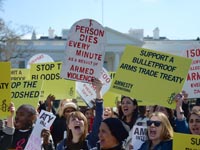
Amnesty activists rally outside the White House in support of a strong Arms Trade Treaty.
A final draft of the treaty was released today, and there are good reasons for cautious optimism – with an emphasis on caution. The final draft doesn’t contain everything we hoped for, but it’s a vast improvement over the version in play last July. Among other things, the draft treaty now clarifies that it will be a breach of international law to supply weapons when the supplier knows at the time of authorization that they will be used for genocide, crimes against humanity, attacks against civilians and grave war crimes. Small but significant changes have edged the text closer to the Golden Rule we’ve been advocating for more than ten years: “Governments must prevent arms transfers where there is a substantial risk that they are likely to be used for serious violations of international human rights and humanitarian law.”
SEE THE REST OF THIS POST
